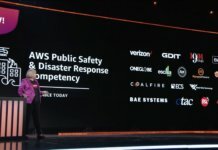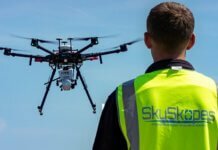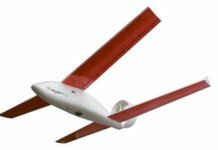The Commercial Drone Alliance is calling on Congress to repeal Section 336 of the FAA Modernization and Reform Act (FMRA) of 2012, which currently prohibits the Federal Aviation Administration from regulating qualifying model aircraft.
Since the implementation of the FAA’s Part 107 rulemaking in 2016, which broadly authorized commercial drone operations in the U.S., drone use has been growing at an exponential rate, the nonprofit group explains in a press release. Consequently, basic “rules of the road” are needed to manage all this new air traffic, the alliance says.
In turn, the group is asking Congress to repeal Section 336 and include new language in the 2018 FAA Reauthorization Act to enable the agency to regulate unmanned aircraft systems (UAS) in what the alliance says would be a common-sense way.
The alliance claims Section 336 of the 2012 FMRA has been “misinterpreted and abused” – giving all model aircraft users, including those not participating as part of a community-based organization, as required under the law – the mistaken impression that they are flying legally.
Furthermore, according to the group, the sheer number of hobbyist aircraft taking to the sky now makes exempting model aircraft from regulation “nonsensical.” As of Dec. 31, 2017, more than 873,000 hobbyist owners had registered with the FAA, which, according to estimates, amounts to more than 1.1 million drones. Over the next five years, the FAA predicts this number will more than double to 2.4 million units.
The alliance argues that an approach giving preferential treatment to hobbyists has clear and adverse implications for the safety and efficiency of the National Airspace System, public safety, and the efficacy of future UAS traffic management systems.
On the other hand, the Academy of Model Aeronautics (AMA), pushing for preservation of Section 336, says in a blog it has “worked diligently with Congress to ensure [its] hobby is protected” in FAA reauthorization.
On March 23, President Donald Trump signed into law an omnibus spending bill that includes a six-month extension of FAA authorization, funding the FAA through Sept. 30, explains AMA, which adds that the extension means Section 336 “will remain intact” and that “members can continue to fly under AMA’s set of community-based safety guidelines, as we have for many decades.”
“While this legislation provides short-term clarity for our members, we need long-lasting certainty for our hobby,” AMA adds. “Over the next six months, we will continue to work with Congress on a long-term reauthorization bill that will strengthen the Special Rule for Model Aircraft and affirm the role of community-based organizations like AMA in educating and supporting hobbyists.”
Lisa Ellman, co-executive director of the Commercial Drone Alliance, notes that the alliance “understand[s] why model aircraft proponents want to remain exempt, as they have been flying safely for decades.”
“However, times have changed, and hobbyists are no longer flying alone,” she says.
Gretchen West, co-executive director of the alliance, adds, “Technology has improved. To promote innovation and the budding commercial drone industry, we need to enable the FAA to craft some common-sense rules around remote identification and more.”








